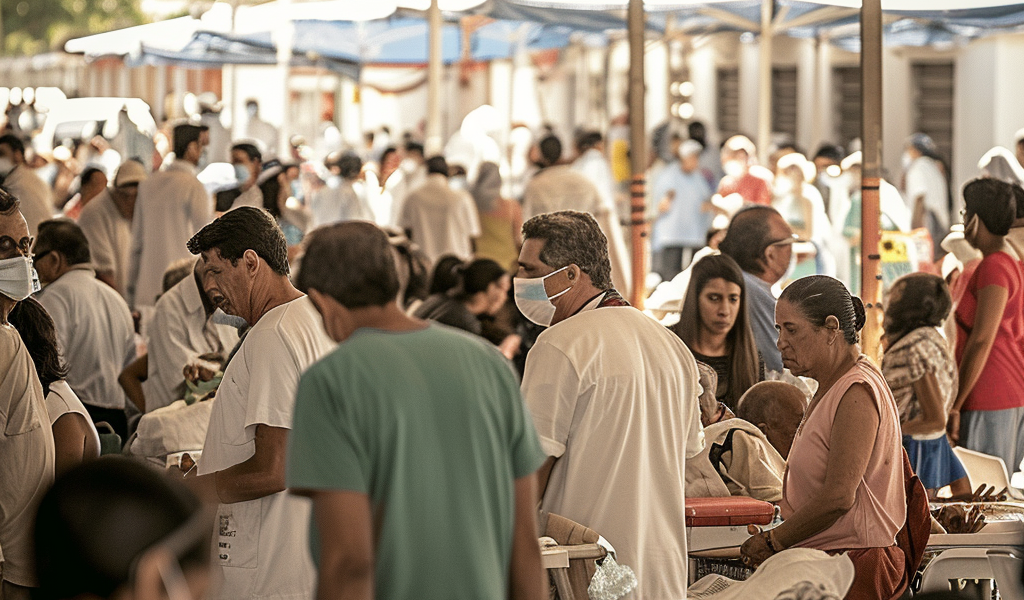Brazil is currently facing a significant surge in dengue fever cases, with over 530,000 suspected cases reported in the first six weeks of 2024. This marks a staggering 314% increase compared to the same period last year, posing a severe public health challenge for the nation.
The outbreak has prompted the Brazilian government to declare a state of emergency in certain regions, particularly in the wake of an exceptionally hot and stormy summer. The alarming spike in dengue fever cases has raised concerns about the country’s ability to effectively combat the spread of the disease.
One potential ray of hope in this dire situation is the approval of the Qdenga vaccine for dengue fever by Brazil’s health regulatory agency. This vaccine, developed by Japan’s Takeda Pharmaceuticals, has offered a glimmer of optimism in the battle against dengue fever. However, the limited availability of the vaccine has posed significant challenges in achieving widespread immunization across the country.
Despite the approval of the Qdenga vaccine, Brazil has been grappling with a shortage of doses, hindering efforts to vaccinate a substantial portion of its population. With a population of over 200 million, the country has faced significant hurdles in procuring an adequate supply of the vaccine, with only 757,000 doses received by the end of January. This shortage has forced Takeda to halt the sale of the vaccine to the private healthcare network, further exacerbating the accessibility issues.
According to the Ministry of Health, the surge in dengue fever cases has already resulted in at least 94 deaths, following a record number of 1,094 deaths in 2023. Experts have expressed concerns about the potential for this year to surpass previous records, citing the direct impact of the climate crisis on the proliferation of disease-carrying vectors such as Aedes aegypti.
Fabiano Duarte Carvalho, a biologist and researcher at Fiocruz Minas, emphasized the link between the climate crisis and the surge in dengue cases, underscoring the urgent need for comprehensive measures to address the growing public health threat.
The situation in Brazil underscores the critical importance of scaling up efforts to combat dengue fever, particularly in the face of climate-related challenges. As the country grapples with the impact of the outbreak, the availability and distribution of the Qdenga vaccine will play a pivotal role in mitigating the spread of dengue fever and protecting the population from this debilitating illness.





